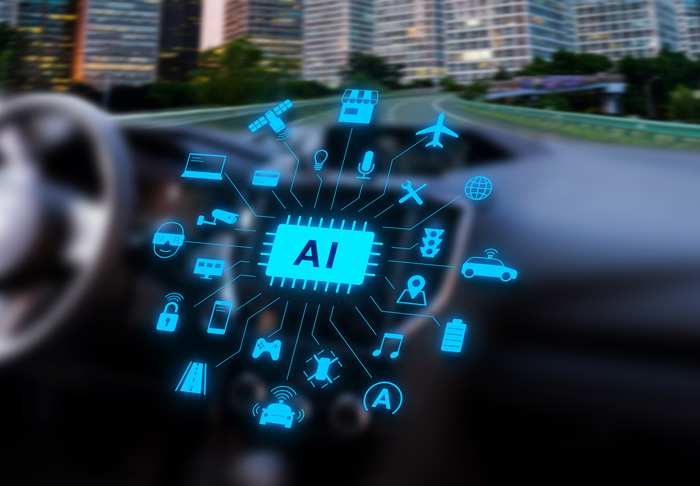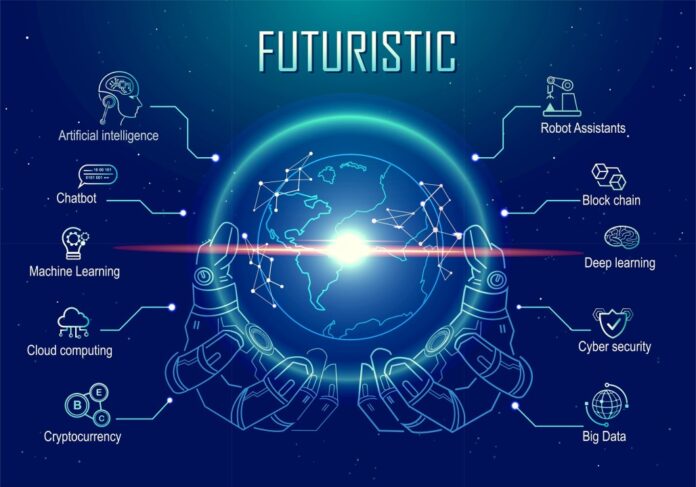Artificial Intelligence (AI) has emerged as a groundbreaking technology that is revolutionizing industries across the globe. With its ability to mimic human intelligence and perform complex tasks, AI is transforming the way we live, work, and interact with the world. From healthcare to finance, manufacturing to transportation, AI is reshaping industries and unlocking new possibilities at an unprecedented pace. In this article, we delve into the power of AI and explore how it is transforming various sectors.
Healthcare:
AI is revolutionizing healthcare by improving diagnostics, treatment plans, and patient care. Machine learning algorithms can analyze vast amounts of medical data, including patient records, research papers, and clinical trials, to identify patterns and make accurate predictions. This enables early detection of diseases, personalized treatment plans, and more precise surgeries. AI-powered chatbots and virtual assistants also assist patients in accessing healthcare information and support, enhancing the overall patient experience.
Finance:
AI has disrupted the finance industry by automating and streamlining processes, improving risk assessment, and enabling personalized financial services. AI algorithms can analyze large datasets and market trends to make predictions, optimize investment portfolios, and detect fraudulent activities. Natural Language Processing (NLP) allows AI systems to understand and respond to customer queries, providing personalized recommendations and assistance. Additionally, AI-powered chatbots are transforming customer service by providing real-time support and reducing response times.
Manufacturing:
AI is revolutionizing the manufacturing sector through automation, predictive maintenance, and quality control. AI-powered robots and machines can perform repetitive tasks with precision and efficiency, reducing human errors and increasing productivity. Machine learning algorithms can analyze sensor data from manufacturing equipment to detect anomalies, predict maintenance needs, and prevent costly breakdowns. AI-driven quality control systems can identify defects in real-time, reducing waste and ensuring higher product standards.
Transportation:
The transportation industry is undergoing a massive transformation due to AI. Self-driving cars, powered by AI algorithms, are on the verge of becoming a reality, promising safer and more efficient transportation. AI-powered route optimization systems enable logistics companies to optimize delivery routes, reduce fuel consumption, and minimize carbon emissions. AI is also revolutionizing public transportation with smart traffic management systems that can alleviate congestion, improve traffic flow, and enhance overall transportation efficiency.

Retail:
AI is reshaping the retail industry by providing personalized shopping experiences, improving inventory management, and optimizing pricing strategies. AI algorithms can analyze customer data, including purchase history and browsing behavior, to offer tailored product recommendations and personalized advertisements. AI-powered chatbots and virtual shopping assistants can provide real-time customer support and guide users through their purchasing journey. AI-powered inventory management systems can optimize stock levels, reduce waste, and improve supply chain efficiency. Additionally, AI algorithms can analyze market trends and customer behavior to optimize pricing strategies and increase profitability.
Agriculture:
AI is transforming the agricultural sector by optimizing crop yields, improving resource management, and enhancing sustainability. AI-powered drones equipped with imaging sensors can monitor crop health, detect diseases, and optimize irrigation and fertilizer usage. Machine learning algorithms can analyze weather patterns, soil conditions, and historical data to predict optimal planting times and optimize crop rotation strategies. AI-driven robotic systems can automate tasks such as harvesting and sorting, increasing productivity and reducing labor costs.
Education:
AI is revolutionizing education by enabling personalized learning experiences, automating administrative tasks, and improving accessibility. AI-powered learning platforms can adapt to individual students’ needs, providing personalized content, feedback, and assessments. Intelligent tutoring systems can identify students’ strengths and weaknesses, offering tailored guidance and support. AI-driven administrative systems can automate tasks such as grading, scheduling, and student record management, freeing up teachers’ time for more meaningful interactions with students. Additionally, AI-powered language translation and speech recognition technologies are breaking down language barriers and making education more accessible to diverse populations.
The power of artificial intelligence is undeniable, and its transformative impact on industries is just beginning to unfold. From healthcare to finance, manufacturing to transportation, AI is unlocking new possibilities, improving efficiency, and enhancing human experiences. However, as AI continues to advance, ethical considerations, such as privacy, bias, and job displacement, must be addressed to ensure that this powerful technology benefits society as a whole. With responsible development and deployment, artificial intelligence has the potential to create a future where innovation and human potential are boundless.

